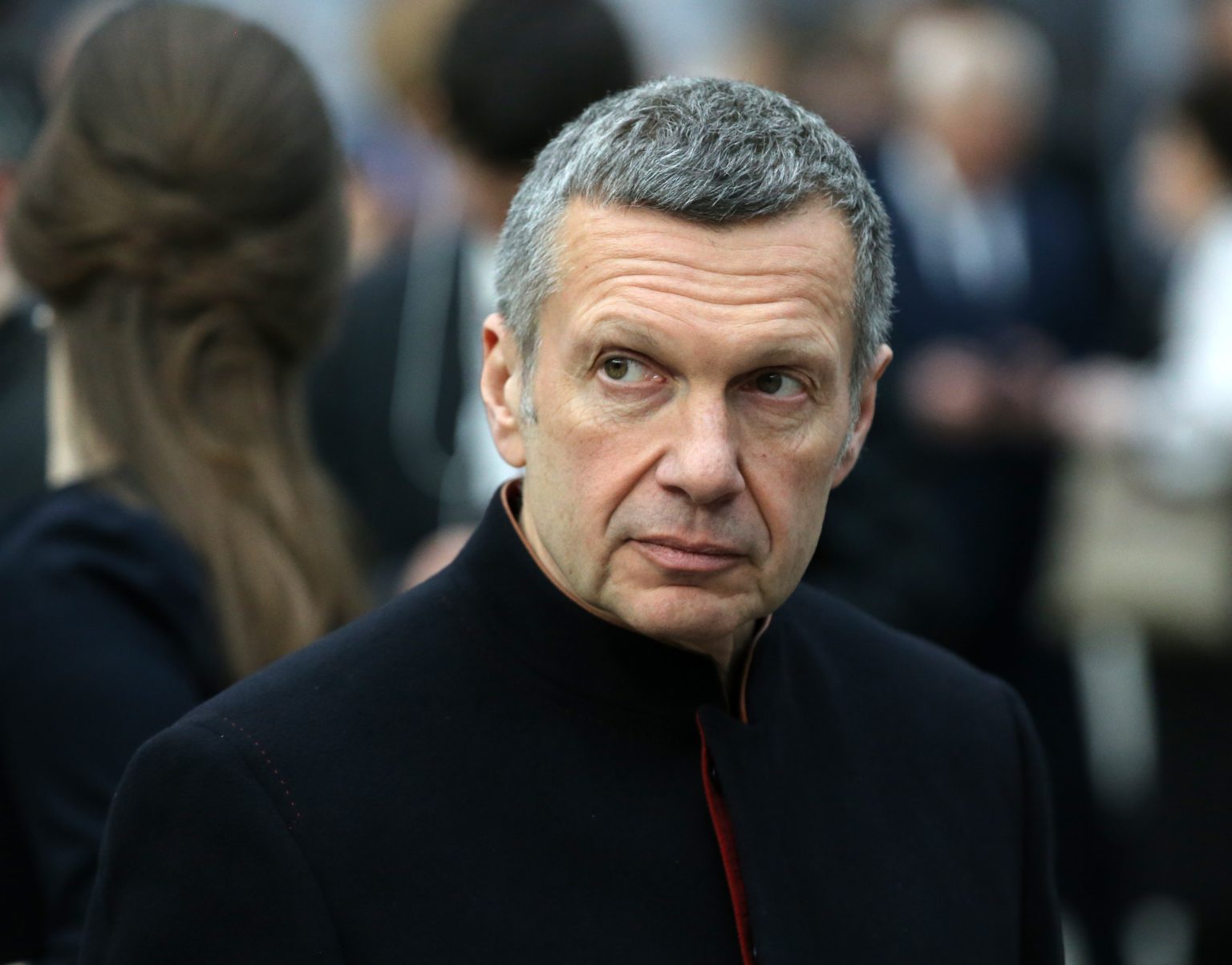Russian propagandist Vladimir Solovyov made controversial statements on his television show, insisting that nuclear war is inevitable amid fears that the conflict in Ukraine could escalate to involve nuclear weapons. Russia’s Deputy Foreign Minister Sergei Ryabkov also warned that Moscow’s nuclear war policy remains unchanged, but the situation is fluid. In response to perceived threats from Western officials, Russia’s military conducted nuclear-weapon drills. Solovyov’s comments were met with resistance from Andrey Sidorov, who argued against escalating tensions.
The discussion on the inevitability of nuclear war continued on the TV show, with Solovyov challenging the size of each country’s strategic weapons. He argued that nuclear war was unavoidable and necessary, while Sidorov disagreed, warning against escalating the situation further. The conversation reflected the ongoing tensions between Russia and the West, with concerns about the potential use of nuclear weapons. The exchange highlighted differing perspectives on the role of nuclear weapons in modern warfare and international relations.
In terms of Russia’s nuclear policy, Deputy Foreign Minister Ryabkov stated that while there have been no changes to the doctrine regarding the possibility of a first use of nuclear weapons, the situation is being constantly analyzed. Russian President Vladimir Putin has expressed readiness for nuclear war but emphasized that it is not his intention to use such weapons unless there is a threat to Russian sovereignty and independence. Ukraine, on the other hand, relinquished its nuclear weapons in 1994 under the Budapest Memorandum in exchange for security guarantees.
NATO has criticized Russia’s aggressive actions and increased reliance on nuclear weapons as a means of intimidation. The military alliance, which includes the United States, has denounced Russia’s invasion of Ukraine and emphasized its commitment to preventing an arms race. Article 5 of NATO’s founding document states that an attack on one member nation is considered an attack on all, demonstrating the alliance’s solidarity in the face of external threats. Despite tensions between Russia and NATO, Putin has stated that Moscow has no interest in fighting the alliance.
The debate surrounding nuclear war highlights the complex dynamics of international relations and the implications of escalating tensions between major world powers. The potential for nuclear conflict in the context of the Ukraine crisis underscores the need for diplomatic efforts to prevent such a catastrophic outcome. The differing perspectives on the role of nuclear weapons and the potential for conflict between Russia and the West demonstrate the fragile balance of power in global politics and the importance of de-escalation strategies to maintain peace and stability.


